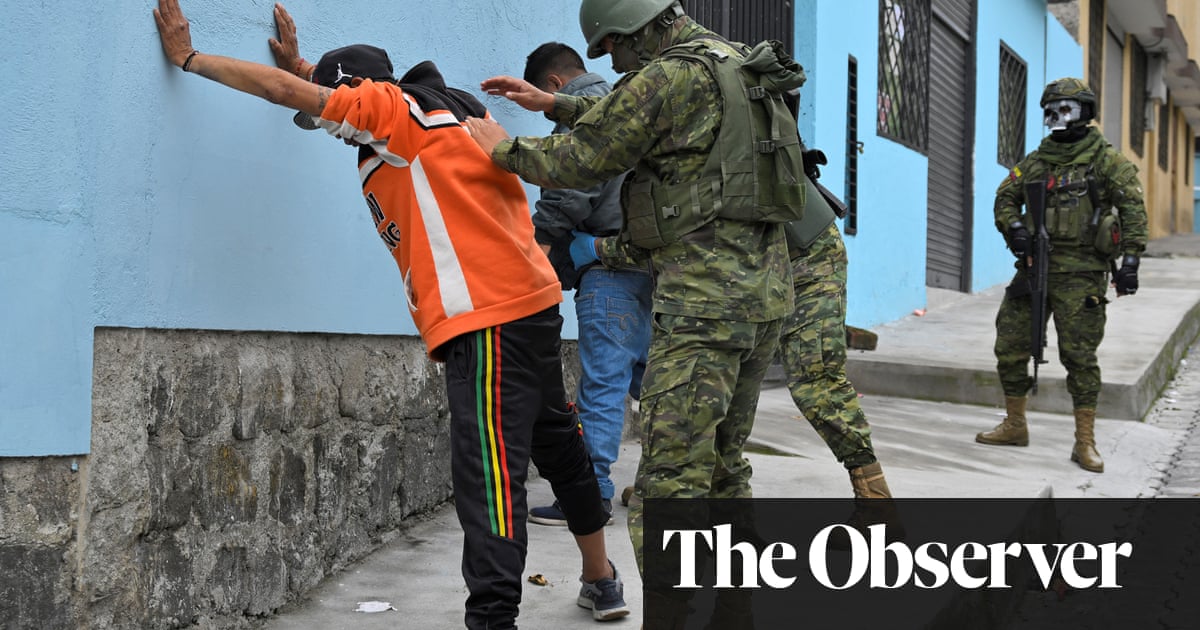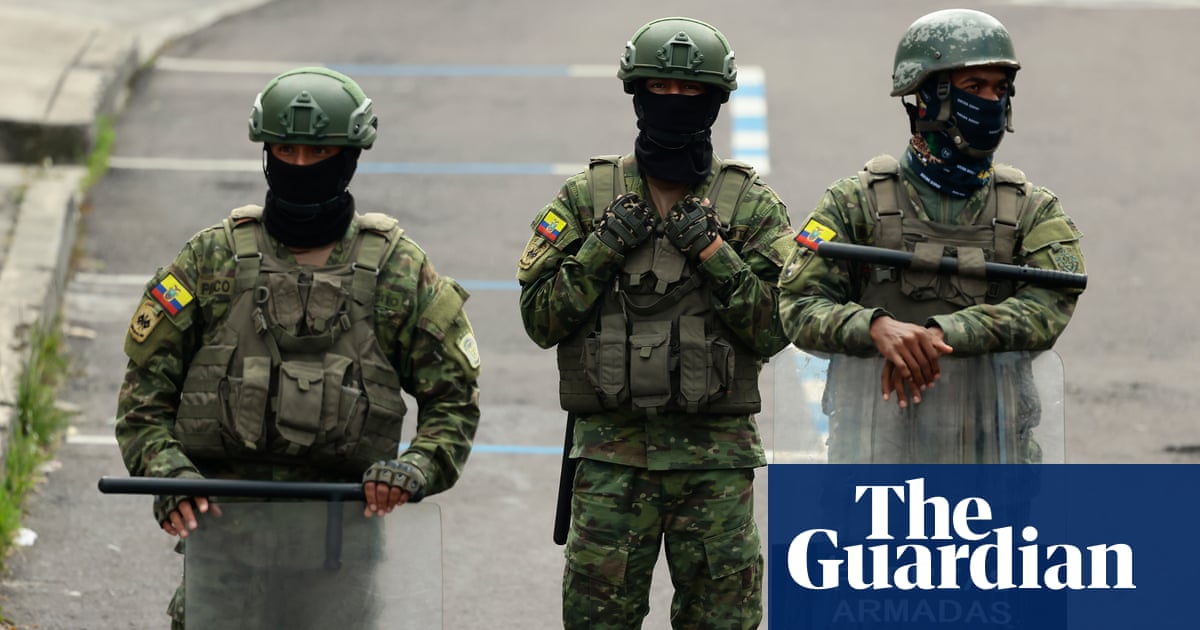
Ecuador’s president, Daniel Noboa, has denied that his government is embarking on an indiscriminate campaign to hunt down and kill gang members, as the South American country continues to reel from a week of chaos and deadly violence that he has classified as a war.
In his first interviews since the turmoil began last Monday, Ecuador’s 36-year-old leader said he was determined to stop his country becoming a “narco-state” and believed the only way to do so was with a hardline crackdown on the organised crime groups bringing “terror” to its prison system and streets.
Long considered one of South America’s most peaceful countries, Ecuador has seen its murder rate rocket in the past five years, with a record 7,878 killings last year as Mexican cartels and foreign mafia groups set up camp in what has become a key drug-trafficking route.
“We aren’t going out to hunt people down and kill them … but we are at war and we are fighting against people who are heavily armed, organised, with domestic and international financial backing and a structure of terror and criminality that reaches far beyond Ecuador’s borders,” Noboa said.
“We are fighting every day so that we do not become a narco-state,” added Noboa, who was elected last October. “I do believe that we can win [this war] and I will not stop fighting until we do.”
The president was speaking during a visit to Ecuador’s largest city, Guayaquil, which suffered some of the worst violence last week when gang members launched a series of seemingly coordinated attacks around the country, setting off car bombs, torching vehicles and buildings, and taking scores of prison guards hostage.
The bustling Pacific port city, which is home to Ecuador’s most important container terminal, plays a central role in the smuggling of South American cocaine to the US and Europe, and has been consumed by gang warfare in recent years as rival groups have battled for control.
On Tuesday, heavily armed hoodlums stormed a Guayaquil television station and took its journalists hostage live on air. “I promise you this will not happen again,” Noboa vowed as he toured the channel’s bullet-riddled studios where police special forces eventually managed to free the captured journalists and made 13 arrests.
But just hours after he spoke, there were further reports of upheaval, when at least six inmates reportedly escaped from a local jail on Friday night. Further south, in the city of Cuenca, shots and explosions were heard coming from another prison in the early hours of Saturday. According to the government, more than 150 prison guards remain in the hands of the prison gangs, having been abducted early last week after one of the country’s most notorious criminals vanished from his cell in circumstances that remain murky.
“My family is totally devastated. We feel awful, sad and impotent,” said the brother of one of 15 prison guards who was seized last Monday in Ambato, a city 95 miles south of the capital Quito.
The brother, who asked not to be named, said he had spent the week camped outside the prison with the families of other captives but had received almost no information about his relative’s plight. “All they have told us is to stay calm because the military and the police will be going in soon,” he said on Friday night. “But we’ve been here since Tuesday … I don’t know what they are waiting for to retake control [of the prison].”
By Friday, Ecuador’s presidency said it had made more than 850 arrests during the first days of Noboa’s “Plan Phoenix” crackdown, the name of which hints at his desire to drag his country out of the ashes. It said five “terrorists” had been killed and 246 guns seized during more than 7,800 operations conducted by the police and military. Two police officers were killed.
“[These criminals have] violated every single human right that has been ever written … So, I think [the crackdown] was our last resort,” Noboa said, dismissing fears that militarising the fight against organised crime would lead to human rights abuses, as has happened in other Latin American countries such as Colombia and Mexico.
Noboa, the US-educated son of a Guayaquil banana tycoon, also rejected the idea that he was seeking to use the crackdown to cling to power. He played down comparisons with El Salvador’s authoritarian leader, Nayib Bukele, who has jailed tens of thousands of alleged gang members since launching a highly controversial anti-gang clampdown in 2022, and who will seek re-election next month.
“I am not seeking, like other governors, to change the constitution to stay longer in power or to declare myself a dictator,” Noboa said. “This is not a dictatorship.”
As more than 22,000 Ecuadorean troops were deployed to restore order and “neutralise” the gangs, the families of those killed during one of the worst outbreaks of violence in the country’s recent history mourned their losses.
“Our only solace is that he died for love,” said Camille Gamarra, whose husband, a respected musician called Diego Gallardo, was killed by a stray bullet after he went out to collect his stepson in Guayaquil during last Tuesday’s mayhem. “Despite the chaos, he gave his life for him,” Gamarra said as she prepared to lay her husband to rest. “The only thing that can save us now is clinging on to that love.”
The former head of Ecuador’s navy, vice-admiral Ángel Sarzosa Aguirre, said the state had no choice but to go on the offensive against the gangs, warning: “If they put up a fight, they will die.”












